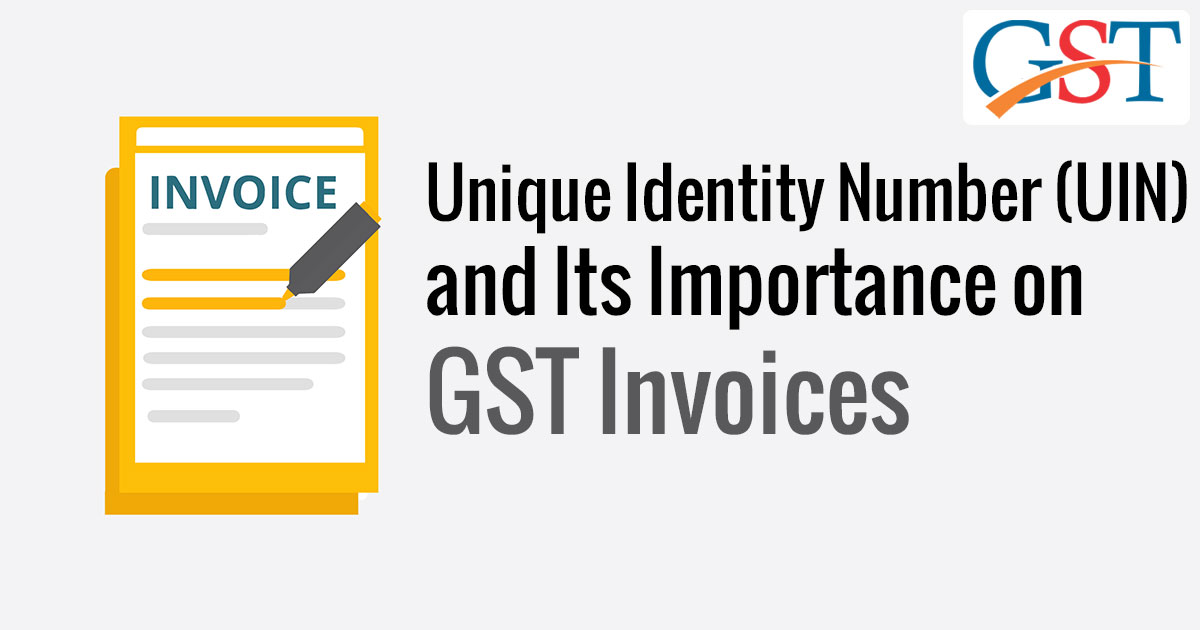
UIN Importance On GST Invoices
The government, in a notice released, has made it compulsory for diplomats and officials of multilateral agencies working in India to mention on their sale invoice/bill the Unique Identity Number (UIN) provided to them.
The order was released in response to the complaints received by the Finance Ministry from foreign diplomats and UN institutions about the vendors and e-commerce sites that were not accepting the 15-digit UIN number while selling taxable goods to them.
The UIN is allotted after a thorough evaluation of the entity. Its first two digits are the State code that represents the location of such entity. It is important for foreign diplomats and UN organisations to get their UIN recorded while purchasing taxable supplies in the country in order to be able to claim a refund of the GST paid on these supplies.
The notice further explains that many big brands of clothing, and groceries, including superstores, are reportedly showing an unwillingness to accept UIN from embassies and consulates. The government has therefore instructed these suppliers must necessarily record the UIN of the embassies and other eligible persons on the tax invoices while making supplies to them.
The government has also informed that the unwillingness to record the UIN on the invoice is a punishable offence under the rules of the Central Goods and Services Tax (CGST). “It may be noted that supply to foreign diplomatic missions/UN organisations is like any other business-to-consumer supply and will not have any additional impact on the supplier’s tax liability,” the statement said.
It further added that the GST Common Portal has the option to Search for UIN details of a particular entity. The facility can be accessed under the ‘Search Taxpayer’ option on the portal.
Recommended: What is GST Identification Number and Its Applicability?










UIN
number
Please link share Aadhar Aadhaar Authentication.